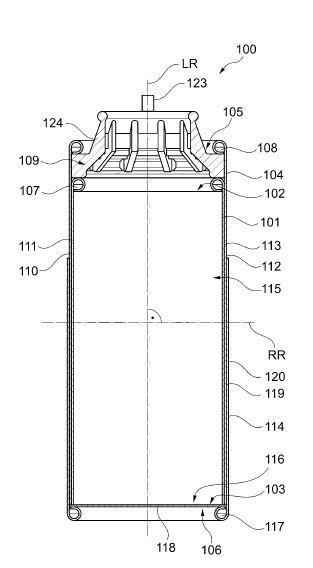A University in Berlin has come up with a novel idea for a drinking bottle made from paper, which is it claims is both compostable and easy to recycle. Dr. Ernst-Ulrich Wittmann, a partner, patent attorney and senior member of the Packaging sector group at European intellectual property firm, Withers & Rogers, takes a closer look.

A patent published by the German patent authorities in February 2022 and subsequently by the World Intellectual Property Office (WIPO) - WO2022033737A1 - is currently being examined by the European Patent Office (EPO). The named applicant on the published patents is shown as Steinbeis-Hochschule-Berlin GmbH.
The invention relates to a liquid container made of paper and a method for producing it. They are intended as drinking bottles and can be stored temporarily in a temperature-controlled environment.

The drawings illustrated in the published patent show a container (100) for holding a fluid comprising an inner sleeve (101) which has a first (102) and second opening (103). There is also an outer sleeve (104) with a third (105) and a fourth opening (106); wherein the inner sleeve and the outer sleeve are made of paper. The first and third openings are both reinforced and this reinforcing element extends to other parts of the invention. This allows the inner sleeve to be inserted into the outer sleeve through the fourth opening and the insert is held in place securely. The published patent also includes a manufacturing method for the liquid container.
The drinking bottle’s unique design is both solid and stable, and its durability can be increased as required. A closure element in the form of a cap, which is placed over the outer sleeve and at least partially covers the outer sleeve and inner sleeve, provides protection from environmental factors such as air humidity. As a supplementary feature, the outer sleeve and the head disk are also made of paper. This reduces the product’s carbon footprint further.
This innovation is interesting for a variety of reasons – it’s an effective, low-carbon solution which can be recycled or disposed of sustainably. By securing patent protection, the University in Berlin is now in a strong position to commercialise its invention or license it to a third-party manufacturer in the future.








No comments yet